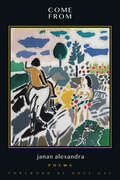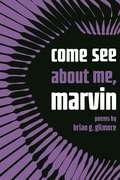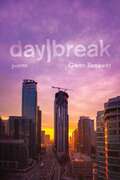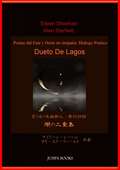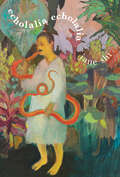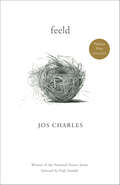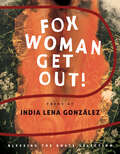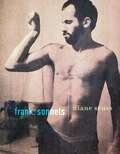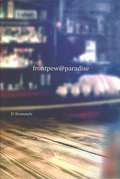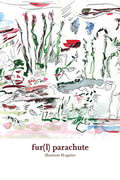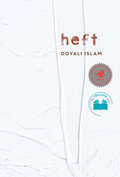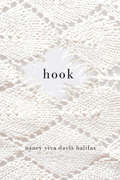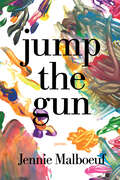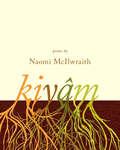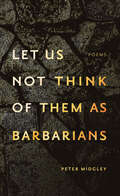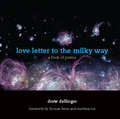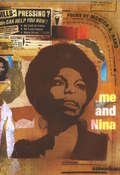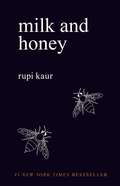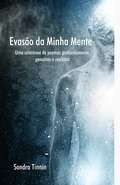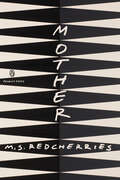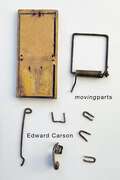- Table View
- List View
come from
by janan alexandraFOREWORD BY ROSS GAYHere is a collection that pulses with warmth and vitality, heralding the arrival of a fresh and vibrant voice on the poetry scene. Clear and concise, accessible and profound, janan alexandra’s debut poetry collection COME FROM weaves from English to Arabic, exploring the joint projects of longing and belonging.Part love song for the speaker’s mother and part grief song for ongoing postcolonial loss, this book reaches for, around, and through language—feeling for its limits and possibilities. COME FROM searches for what might be possible if we dislodge our practices of belonging, divest from nation and state, and instead turn deeply toward each other. Drawing on both narrative and lyric impulses, alexandra invites readers into a world bristling with family, memory, home, and inheritance—all in the wake of dislocation and fracture. In one section of the book, we follow the speaker “back home” after years of separation; later, we encounter a series of parables in the form of an Arabic abecedarian, through which the speaker recovers parts of her mother tongue—invoking personal and communal histories marked with the longue durée of empire.COME FROM investigates what is deeply interior while reaching toward the world with tenderness and generous attention.
come see about me, marvin (Made in Michigan Writers Series)
by Brian Gilmorecome see about me, marvin is accessible, honest poetry about and for real people. In the collection, brian g. gilmore seeks to invite the reader into a fantastical dialogue between himself and Marvin Gaye—two black men who were born in the nation’s capital, but who moved to the Midwest for professional ambitions. In trying to acclimate himself to a new job in a new place—a place that seemed so different from the home he had always known—gilmore often looked to Marvin Gaye as an example for how to be. These poems were derived as a means of coping in a strange land. The book is divided into four sections, beginning with section one, "love that will shelter you," and features poems about dealing with life in Michigan as it is in reality. Sections two and three, "nowhere to hide" and "no ordinary pain," include poems about the brutality of the Midwest and some of the historical realities as gilmore came to understand them. The final section, "let your love come shining through," attempts to invoke hope in poetry. come see about me, marvin is gilmore’s answer to life’s perplexing issues, with Marvin Gaye as the perfect vehicle to explore these ideals. Readers of poetry and lovers of Motown will embrace this love letter to a local legend.
day/break
by Gwen Benawayday/break, poet Gwen Benaway's fourth collection of work, explores the everyday poetics of the trans feminine body. Through intimate experiences and conceptualizations of trans life, day/break asks what it means to be a trans woman, both within the text and out in the physical world. Shifting between theory and poetry, Benaway questions how gender, sexuality, and love intersect with the violence and transmisogyny of the nation state and established literary institutions. In beautiful lyric verse, day/break reveals the often-unseen other worlds of trans life, where body, self, and sex are transformed, becoming more than fixed binary locations.
day/break
by Gwen Benawayday/break, poet Gwen Benaway's fourth collection of work, explores the everyday poetics of the trans feminine body. Through intimate experiences and conceptualizations of trans life, day/break asks what it means to be a trans woman, both within the text and out in the physical world. Shifting between theory and poetry, Benaway questions how gender, sexuality, and love intersect with the violence and transmisogyny of the nation state and established literary institutions. In beautiful lyric verse, day/break reveals the often-unseen other worlds of trans life, where body, self, and sex are transformed, becoming more than fixed binary locations.
dueto de lagos
by Maki Starfield Eileen SheehanLa poeta irlandesa Eileen Sheehan y la poeta japonesa Maki Starfield dialogaron sobre "Lake" compartiendo sus poemas. Lago de día, lago de noche, cada poema muestra movimiento y calma, activividad y contemplación.
echolalia echolalia
by Jane ShiRelentlessly inventive poetry that proclaims a diasporic, queer, and disabled self-hood.In Jane Shi's echolalia echolalia, commitment and comedy work together to critique ongoing inequities, dehumanizing ideologies, and the body politic. Here are playful and transformative narratives of friendship and estrangement, survival and self-forgiveness. Writing against inherited violence and scarcity-producing colonial projects, Shi expresses a deep belief in one's chosen family, love and justice."Shi extends her poetics in all directions with silky skill. Language flourishes in the realm of a poet like this." - T. Liem, author of Slows: Twice and Obits.
feeld
by Jos CharlesFINALIST FOR THE PULITZER PRIZEFINALIST FOR THE LOS ANGELES TIMES BOOK PRIZELONGLISTED FOR THE NATIONAL BOOK AWARDA NEW YORKER BEST POETRY BOOK OF 2018A VULTURE BEST POETRY BOOK OF 2018A LIBRARY JOURNAL BEST BOOK OF 2018Selected by Fady Joudah as a winner of the 2017 National Poetry Series, Jos Charles&’s revolutionary second collection of poetry, feeld, is a lyrical unraveling of the circuitry of gender and speech, defiantly making space for bodies that have been historically denied their own vocabulary. &“i care so much abot the whord i cant reed.&” In feeld, Charles stakes her claim on the language available to speak about trans experience, reckoning with the narratives that have come before by reclaiming the language of the past. In Charles&’s electrifying transliteration of English—Chaucerian in affect, but revolutionary in effect—what is old is made new again. &“gendre is not the tran organe / gendre is yes a hemorage.&” &“did u kno not a monthe goes bye / a tran i kno doesnt dye.&” The world of feeld is our own, but off-kilter, distinctly queer—making visible what was formerly and forcefully hidden: trauma, liberation, strength, and joy. Urgent and vital, feeld composes a new narrative of what it means to live inside a marked body.
fox woman get out!
by India Lena GonzálezTake the body and split it wide open. Fill it with light. See the multiple interiors, the layered death, the familial mythology, the throb and splendor of being, the shedding of the body altogether: this is fox woman get out! Traveling from the corporeal to the cosmic, from life to death and back again, fox woman get out! is a full-throated performance of humanity in search of truth, ancestry, and artistic authenticity. Moving through themes of lineage, twinship, femininity and masculinity, reclamation of Indigeneity, dance, gender roles, and longing, González’s poems are a crescendo on the page. Part ecstatic elegy, part spell, this is a betwixt poetics, a kaleidoscopic, disruptive, and meditative work.
frank: sonnets
by Diane SeussA resplendent life in sonnets from the author of Four-Legged Girl, a finalist for the Pulitzer Prize“The sonnet, like poverty, teaches you what you can do / without,” Diane Seuss writes in this brilliant, candid work, her most personal collection to date. These poems tell the story of a life at risk of spilling over the edge of the page, from Seuss’s working-class childhood in rural Michigan to the dangerous allures of New York City and back again. With sheer virtuosity, Seuss moves nimbly across thought and time, poetry and punk, AIDS and addiction, Christ and motherhood, showing us what we can do, what we can do without, and what we offer to one another when we have nothing left to spare. Like a series of cels on a filmstrip, frank: sonnets captures the magnitude of a life lived honestly, a restless search for some kind of “beauty or relief.” Seuss is at the height of her powers, devastatingly astute, austere, and—in a word—frank.
frontpew@paradise
by J. V. BrummelsJV Brummels' latest collection is frontpew@paradise is Brummels' best work to date; while the poems--as in his earlier collections, 614 Pearl, Cheyenne Line, City at War, Book of Grass, among others--focus upon the daily and particular concerns of the Great Plains and of ranch life, frontpew places Brummels' readers up close and personal into the sermon that a long life may be. The poems are not didactic by any means, but they are wise and contemplative, as the long road to paradise may be paved.
fur(l) parachute
by Shannon Maguirefur(l) parachute claims as its surrogate the Old English poem “Wulf and Eadwacer.” Declining from a mutant echo of this nineteen-line fragment that appears in the tenth century Exeter manuscript as a text that might be a riddle, or an example of a woman’s lament, or even a broken elegy, the language of fur(l) parachute is further disrupted by such texts as instructions on how to make a parachute lure for fly fishing or the misreading of mathematical knot diagrams. Wryly troubling origins, this poem multiplies its outlawed longing for all that cannot cross.
heft
by Doyali IslamFrom award-winning Toronto-based poet Doyali Islam comes a second collection of poems that investigates rupture and resilience.GRIFFIN POETRY PRIZE FINALISTPAT LOWTHER MEMORIAL AWARD FINALISTTRILLIUM BOOK AWARD FOR POETRY FINALISTHow does one inhabit a world in which "the moon / & the drone hang in the same sky"? How can one be at home in one's own body in the presence of suspected autoimmune illness, chronic/recurrent pain, and a society that bears down with a particular construct of normal female sexual experience? What might a daughter salvage within a fraught relationship with a cancer-stricken father? Uncannily at ease with both high lyricism and formal innovation and invention, these poems are unafraid to lift up and investigate burdens and ruptures of all kinds--psychic, social, cultural, physical, and political.Providing continuity over the poet's visually-arresting forms--including Islam's self-termed split sonnets, double sonnets, and parallel poems--is allied remembrance of the resilience of the Palestinian people. Yet, the work doesn't always stray far from home, with a quintet of astro-poems that weave together myth and memory.Here is a poet small in stature, unwilling to abandon to silence small histories, small life forms, and the small courages and beauties of the ordinary hour. In these rigorous, intimate, and luminous poems, the spirit of the everyday and the spirit of witness bind fiercely to one another. heft is a ledger of tenderness, survival, and risk.
hook
by nancy viva davis halifaxSee her? / Steadfast and firm her / branches graze the mantle of quiet clouds / as she elaborates her claim Haunted by indifference toward systemic violences and the disregard endured by those people labelled as "problems," nancy viva davis halifax's poems articulate the constraints of discredited lives. Conveying her experiences witnessing homelessness, poverty, disability, and chronic illness on the streets and within women's emergency shelters, davis halifax orients readers to recognize ongoing suffering in our society. One poem, a purl of four words, reminds the reader that language entangles and unbinds lives, and that life is an unfastening, a knitting by which some are lost and others made separable. These are unregulated poems, poems that refuse indifference and reassert mutuality. They are not an argument, they are not assured, not facts, not a problem, not a resource, but an opening.
hook (Hugh MacLennan Poetry Series #33)
by nancy viva davis halifaxSee her? / Steadfast and firm her / branches graze the mantle of quiet clouds / as she elaborates her claim Haunted by indifference toward systemic violences and the disregard endured by those people labelled as "problems," nancy viva davis halifax’s poems articulate the constraints of discredited lives. Conveying her experiences witnessing homelessness, poverty, disability, and chronic illness on the streets and within women's emergency shelters, davis halifax orients readers to recognize ongoing suffering in our society. One poem, a purl of four words, reminds the reader that language entangles and unbinds lives, and that life is an unfastening, a knitting by which some are lost and others made separable. These are unregulated poems, poems that refuse indifference and reassert mutuality. They are not an argument, they are not assured, not facts, not a problem, not a resource, but an opening.
jump the gun
by Jennie Malboeufjump the gun digs deep into the dark undercurrents of grief and gun violence that shadow our daily lives in America. These poems uproot the hidden recesses of life, the stages and struggles of womanhood, and our continual fight against violence, both internal and external, in the U.S. today. The speaker in these poems wrestles with the everyday fears and realities we often try to ignore: the complex expectations placed on young girls and mothers alike, the illusion of childhood innocence, and the very real consequences of our environmental destruction.Split into two sections—with poems that layer blood-soaked images between close-ups of the body and domestic life that bloom with intimacy, this collection deftly illustrates the beauty that can be found in tragedy, the fragility of the natural world, and the resilience of the human relationships that fill it.To read jump the gun is to witness yourself through the crosshairs. In Malboeuf’s words, “What hit you has become you. / Pieces of the bullet embedded / in your skin. Even / that which you come from / will never be the same. / But from violence comes / the tides, the seasons.”
kiyam
by Naomi McilwraithThrough poems that move between the two languages, McIlwraith explores the beauty of the intersection between nêhiyawêwin, the Plains Cree language, and English, âkayâsîmowin. Written to honour her father’s facility in nêhiyawêwin and her mother’s beauty and generosity as an inheritor of Cree, Ojibwe, Scottish, and English, kiyâm articulates a powerful yearning for family, history, peace, and love.
let us not think of them as barbarians (Crow Said Poetry)
by Peter MidgleyPeter Midgley’s let us not think of them as barbarians is a bold narrative of love, migration, and war hewn from the stones of Namibia. Sensual and intimate, these evocative poems fold into each other to renew and undermine multiple poetic traditions. Gradually, the poems assemble an ombindi—an ancestral cairn—from a history of violent disruption. Underlying the intense language is an exploration of African philosophy and its potential for changing our view of the world. Even as the poems look to the past, they push the reader towards a future that is as relevant to contemporary Canada as it is to the Namibian earth that bled them.
love letter to the milky way
by Matthew Fox Thomas Berry Drew DellingerA small book of very big poems. Drew Dellinger's poetry reaches out to the far ends of the Milky Way and to the inner depths of the soul. His poetry and performances have captivated thousands across six continents. He is, in the words of Cornell West, "one of the most creative, courageous and prophetic poets of his generation." This power of his poetry is tied to his passion for ecological survival and social justice movements. The Rev. Osagyefo Sekou calls Dellinger "the poet laureate of the global justice democracy movement."it's 3:23 in the morningand I'm awakebecause my great great grandchildrenwon't let me sleepmy great great grandchildrenask me in my dreamswhat did you do while the planet was plundered?what did you do when the earth was unraveling? from the poem "hieroglyphic stairway" read on the floor of Congress during climate change hearings
love letter to the milky way
by Matthew Fox Thomas Berry Drew DellingerA small book of very big poems. Drew Dellinger's poetry reaches out to the far ends of the Milky Way and to the inner depths of the soul. His poetry and performances have captivated thousands across six continents. He is, in the words of Cornell West, "one of the most creative, courageous and prophetic poets of his generation." This power of his poetry is tied to his passion for ecological survival and social justice movements. The Rev. Osagyefo Sekou calls Dellinger "the poet laureate of the global justice democracy movement."it's 3:23 in the morningand I'm awakebecause my great great grandchildrenwon't let me sleepmy great great grandchildrenask me in my dreamswhat did you do while the planet was plundered?what did you do when the earth was unraveling? from the poem "hieroglyphic stairway" read on the floor of Congress during climate change hearings
love letter to the milky way
by Matthew Fox Thomas Berry Drew DellingerA small book of very big poems. Drew Dellinger's poetry reaches out to the far ends of the Milky Way and to the inner depths of the soul. His poetry and performances have captivated thousands across six continents. He is, in the words of Cornell West, "one of the most creative, courageous and prophetic poets of his generation." This power of his poetry is tied to his passion for ecological survival and social justice movements. The Rev. Osagyefo Sekou calls Dellinger "the poet laureate of the global justice democracy movement."it's 3:23 in the morningand I'm awakebecause my great great grandchildrenwon't let me sleepmy great great grandchildrenask me in my dreamswhat did you do while the planet was plundered?what did you do when the earth was unraveling? from the poem "hieroglyphic stairway" read on the floor of Congress during climate change hearings
me and Nina
by Monica Hand"Monica Hand's me and Nina is a beautiful book by a soul survivor. In these poems she sings deep songs of violated intimacy and the hard work of repair. The poems are unsentimental, blood-red, and positively true, note for note, like the singing of Nina Simone herself. Hand has written a moving, deeply satisfying, and unforgettable book."-Elizabeth AlexanderIn an intimate conversation with the "High Priestess of Soul," Monica A. Hand surveys the places and moods of alienation through poems that are as musical and stylistically diverse as Nina Simone's work. Hand readily embraces a "mass hypnosis" style, putting "a spell on [us]" with her intensely passionate cries and commitment to embracing both tragedy and exuberance in these insightful poems.From "Dear Nina":I am not recessiondepressionoppressioncompressioncrooked linebroken linepolka dotparking lotor spotI am a Gift from GodI know thatI am anun-keptsolo songMonica A. Hand is a poet and book artist currently living in Harlem, New York. Her poems have appeared or are forthcoming in Aunt Chloe, Black Renaissance Noire, The Sow's Ear, Drunken Boat, Beyond the Frontier, African-American Poetry for the 21st Century, Gathering Ground: A Reader Celebrating Cave Canem's First Decade, and elsewhere. She holds an MFA in poetry and poetry in translation from Drew University and is a founding member of Poets for Ayiti.
milk and honey
by Rupi Kaur<P>milk and honey is a collection of poetry and prose about survival. About the experience of violence, abuse, love, loss, and femininity. <P>The book is divided into four chapters, and each chapter serves a different purpose. <br>Deals with a different pain. <br>Heals a different heartache. <P>milk and honey takes readers through a journey of the most bitter moments in life and finds sweetness in them because there is sweetness everywhere if you are just willing to look. <P><b>A New York Times Bestseller</b>
minha fuga de mentes
by Sondra Tinnin Maria do Carmo Isabel Alves Camacho de AndradeUma coletânea de poemas profundamente genuínos e realistas. Nesta obra Sondra Hicks revela-nos a realidade nua e crua, aspetos positivos da sua vida e outros mais marcantes e negativos. A sua poesia tem um cunho claramente realista e profundamente genuíno e pessoal. Nela são apresentadas as suas vivências, batalhas, conflitos entre outros aspetos. Nesta obrasão também apresentados poemas sobre alguns dos seus familiares e também escritos por alguns dos seus parentes e amigos.
mother (Penguin Poets)
by m.s. RedCherriesA stunning, multimorphic work of poetry and prose about Indigenous identitymother is a work rooted in an intimate fracture: an Indigenous child is adopted out of her tribe and raised by a non-Indian family. As an adult finding her way back to her origins, our unnamed narrator begins to put the pieces of her birth family's history together through the stories told to her by her mother, father, sister, and brother, all of whom remained on the reservation where she was born. Through oral histories, family lore, and imagined pasts and futures, a collage of their community emerges, raising profound questions about adoption, inheritance, and Indigenous identity in America.Through poetic vignettes whose unconventional forms mirror the nonlinear, patchwork process of constructing a sense of self, m.s. RedCherries has crafted an indelible and utterly original work about the winding roads that lead us home.
movingparts (Hugh MacLennan Poetry Series)
by Edward Carsonthe body / knows what / it truly / wants yet / the mind / wavers allIn Edward Carson’s provocative new work, the poetic moving parts of movingparts confront and breathe new life into what’s true and what’s not in Aesop’s fable "The Fox and the Crow," as well as the shifting, often fragmentary ground between what’s said and what’s not about identity and intimacy in Sappho’s lyrics.Reflecting the moment-to-moment ways our minds think, these poems take us from a creative process of disconnection and reassembly to a sonic pacing of words arising out of their stillness on the page. A flair for syntactical compression is found throughout, balanced by a capricious yet transforming diction, what John Ashbery described as seeking to stretch “the bond between language and communication.” Calling witness to the narratives of history while pivoting their reach forward to the present, the rhythms, allusions, and resulting outcomes of Carson’s use of language expand both narrative and discovery. movingparts is brought full circle when an unexpected historical connection between Sappho and Aesop is revealed, hinting that what is true or false in the past or present of our lives can arrive at an intimacy with and illumination of more than we imagine.
